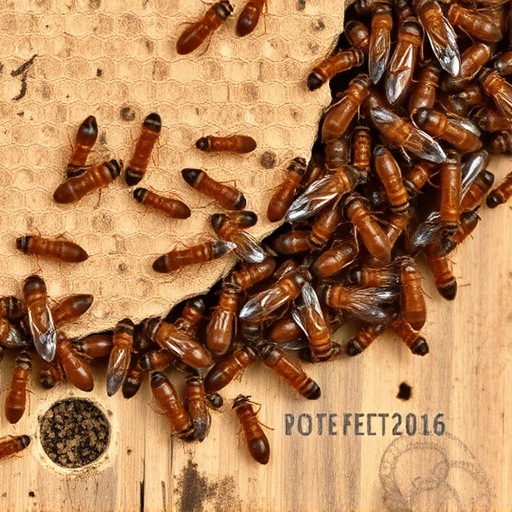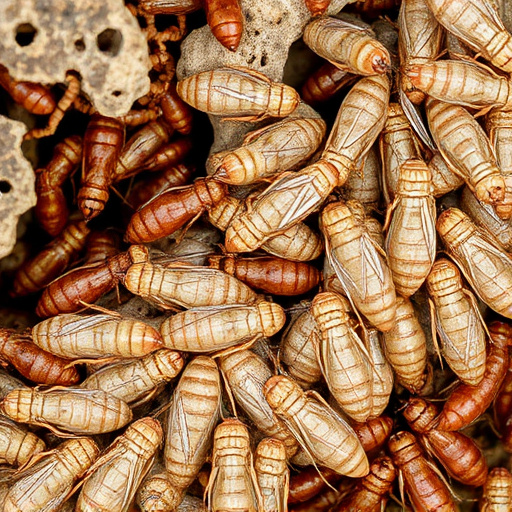In the Catalina Foothills region of Tucson, understanding termite behavior is key to effective termite control. Termites are attracted to warm, dry climates and active during summer. They can enter homes through cracks and establish colonies undetected. Natural prevention methods using essential oils, herbs, and spices like lemongrass, lavender, cinnamon, and garlic are gaining popularity for their safety and minimal environmental impact. Homeowners prioritize organic methods like neem oil and Bacillus thuringiensis (Bt) bacteria to deter termites. A multi-layered approach combining physical barriers, regular inspections, natural repellents, and beneficial insects is essential for comprehensive protection against termite control Tucson.
In the Catalina Foothills, homeowners face unique challenges when it comes to termite prevention. Understanding these pests’ behavior in Tucson’s climate is crucial for effective termite control. This article explores natural remedies and organic treatments tailored to the local environment. We delve into understanding termite behavior, highlighting the effectiveness of natural repellents and providing practical tips for maintaining a barrier against these intruders. Discover long-term prevention strategies specific to termite control in Tucson homes.
- Understanding Termite Behavior in Tucson's Climate
- Natural Repellents and Their Effectiveness
- Organic Treatments for Effective Termite Control
- Maintaining a Barrier: Long-term Prevention Strategies
Understanding Termite Behavior in Tucson's Climate

In the Catalina Foothills region of Tucson, understanding termite behavior is crucial for effective termite control Tucson. These insects are highly adaptive and thrive in the area’s warm, dry climate. During the summer months, termites are most active, seeking out water sources, which makes them particularly drawn to homes with ample moisture, especially in poorly ventilated areas like basements or crawl spaces. They can enter through tiny cracks as narrow as 1/32nd of an inch and establish colonies undetected for years.
The region’s natural landscape provides both shelter and food for termites, with wood from fallen trees and plants serving as readily available resources. Knowing this behavior allows homeowners to take proactive measures, such as ensuring proper drainage around their homes, maintaining wood structures away from the building foundation, and regularly inspecting for any signs of termite activity—all essential aspects of termite control Tucson.
Natural Repellents and Their Effectiveness

In the quest for effective termite prevention, natural repellents offer an eco-friendly alternative to traditional chemical treatments. These organic solutions have gained popularity in the Catalina Foothills area due to their safety and minimal environmental impact. Plants like lemongrass, lavender, and citronella are known for their strong scents that termites find repulsive. The essential oils from these plants can be used to create natural barriers around homes, acting as a deterrent against termite infestation.
Research suggests that specific herbs and spices commonly found in kitchens also serve as effective termiticides. For instance, cinnamon, cloves, and garlic have been shown to disrupt termites’ behavior and communication systems. When applied correctly, these natural repellents can provide significant protection against termites, making them a viable option for those seeking termite control in Tucson without harsh chemicals.
Organic Treatments for Effective Termite Control

In the search for effective termite prevention, many homeowners in Catalina Foothills are turning to organic treatments as a preferred alternative to chemical-based solutions. These natural methods offer a safe and eco-friendly approach to termite control, which is particularly appealing for those concerned about the environment and indoor air quality. Organic treatments leverage the power of essential oils, plant extracts, and beneficial insects to disrupt termite activity and ward off infestations.
One popular organic method involves using neem oil, derived from the neem tree, known for its insecticidal properties. When applied topically or incorporated into a spray, neem oil can repel termites and interfere with their reproductive cycles. Additionally, certain bacteria like Bacillus thuringiensis (Bt) are effective in controlling termite populations by targeting specific enzymes essential for their survival. Termite control Tucson professionals often recommend these organic treatments as part of an integrated pest management strategy, combining them with structural modifications to create a robust defense against termites.
Maintaining a Barrier: Long-term Prevention Strategies

In Catalina Foothills homes, maintaining a robust barrier is key to long-term termite prevention strategies for effective termite control Tucson. This involves a combination of physical and chemical defenses. Physically, ensuring your home’s foundation is sealed tightly and using materials resistant to termite intrusion can significantly deter these pests. Regular inspections are also crucial; identifying and addressing potential entry points before termites do can prevent costly damage.
Chemically, utilizing natural repellents like essential oils or applying organic pesticides can be effective. However, for a more holistic approach, integrating beneficial insects that prey on termites into your garden ecosystem can serve as a biological control measure. Maintaining a balanced environment not only supports overall home health but also acts as a dynamic defense against termite infestations in Tucson homes.
In Catalina Foothills homes, natural termite prevention methods offer an eco-friendly alternative to traditional chemical treatments. By understanding local termite behavior in Tucson’s climate and employing organic solutions, homeowners can effectively protect their properties. Organic treatments, combined with long-term barrier maintenance, provide a comprehensive strategy for termite control Tucson residents can trust. Embracing these natural remedies ensures a safer, more sustainable approach to pest management while preserving the unique ecological balance of the region.
